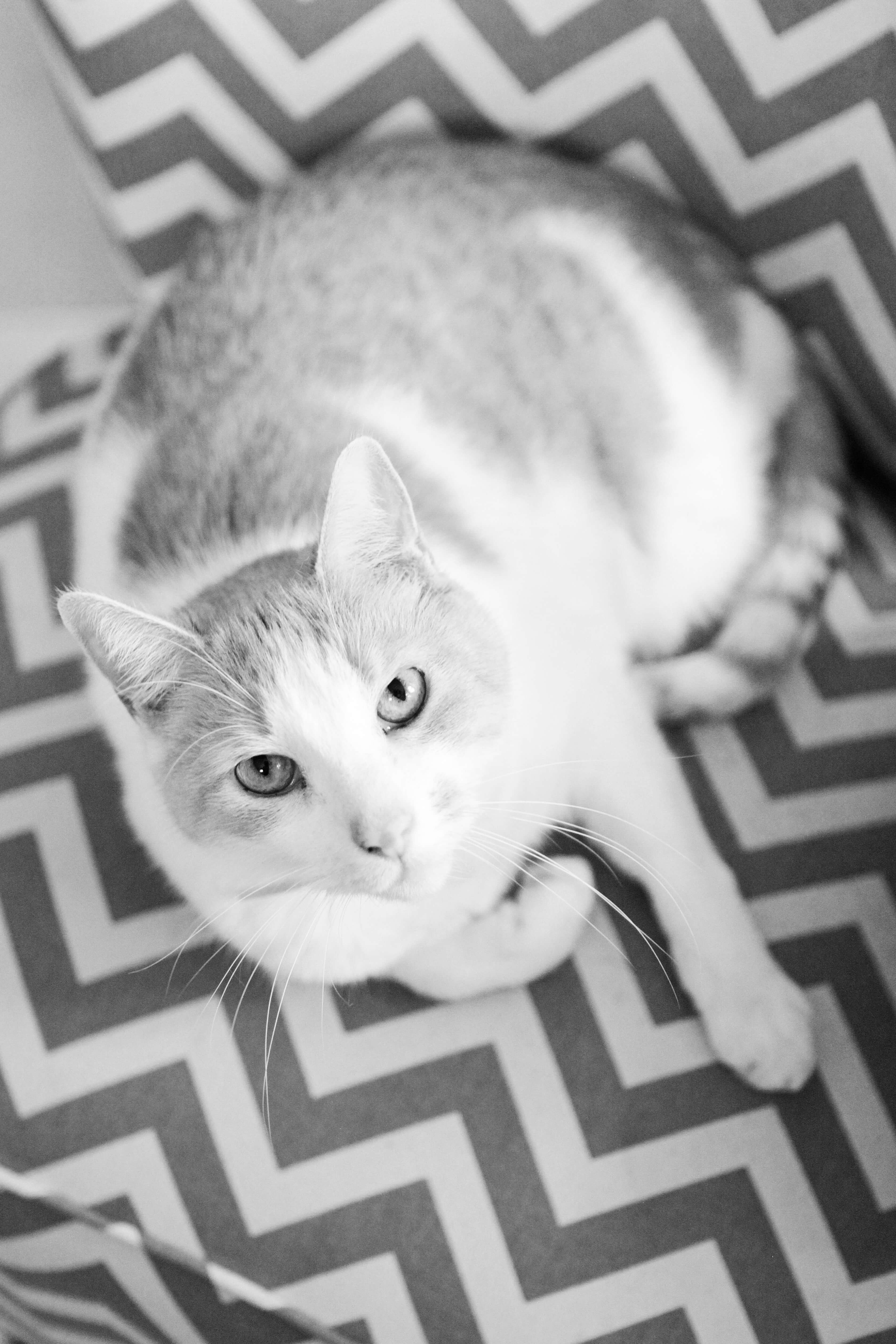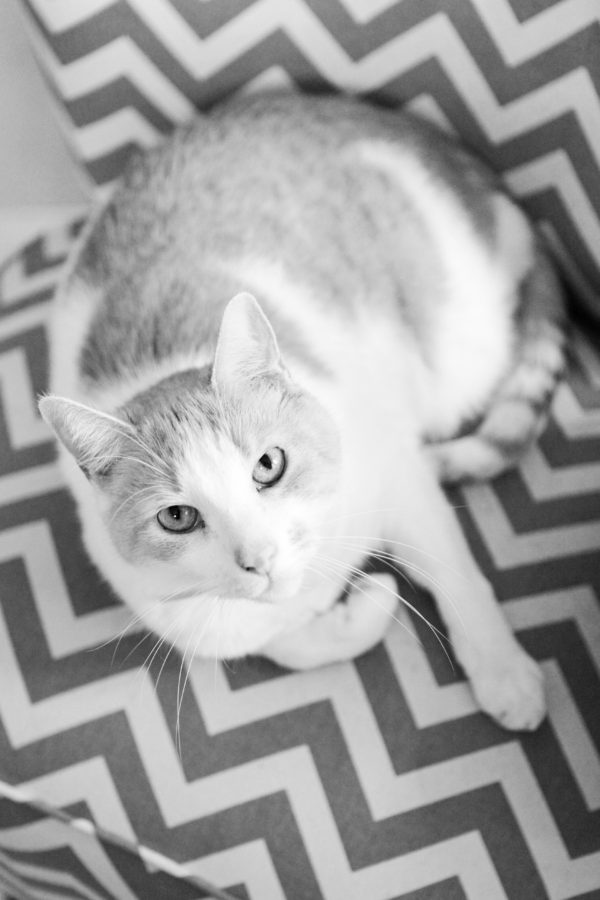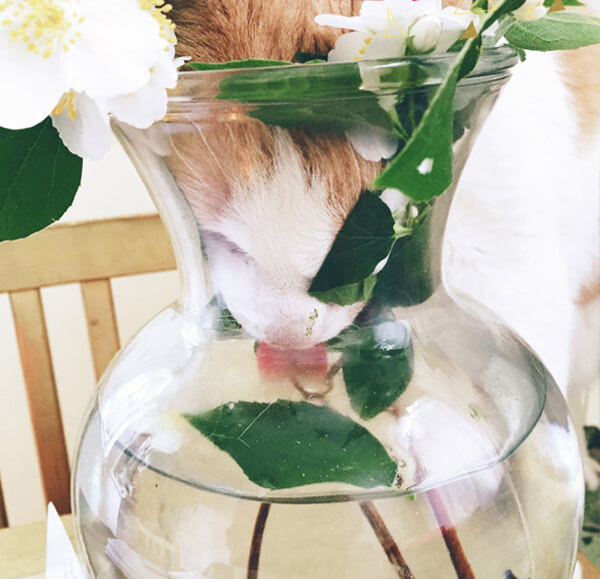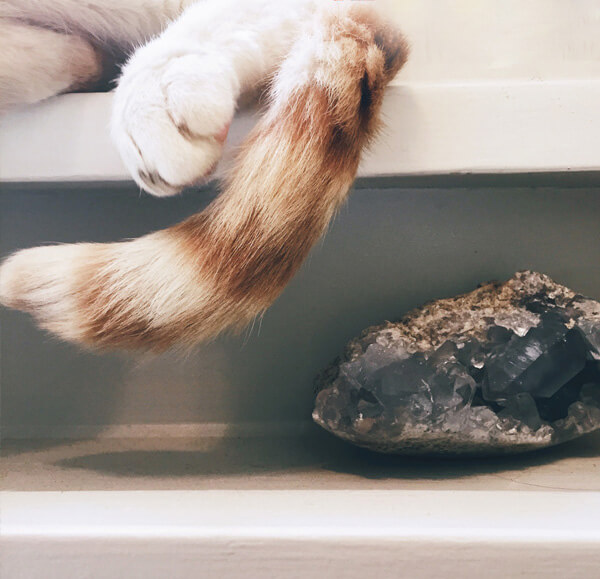Oh hey there! Today, I’ve got a very special guest dropping by: Depression Me.
Depression Me likes to wear a fuzzy Princess Leia onesie and watch Bravo TV episodes on loop, vaguely glancing at the dog I feel guilty for not walking before lurching back into ‘reality’ world.
Depression Me likes to move back deadlines, cancel appointments, table projects, and otherwise delay all of my professional work. She HATES being told what to do and when to do it.
Depression Me has IDEAS:
It’s cloudy outside? Let’s skip work.
Raining? Oh GOD no, we can’t work.
Woke up early? Didn’t sleep well? It’s Monday? We’d better wait until tomorrow to get started.
If Depression Me were a cereal, she would be Cap’n Crunch, minus the part where you actually get to eat it. She would just be those gross remnants stuck to the scraped-up, oddly-coated roof of your mouth.
Depression Me has been visiting way longer than usual this year, as Seasonal Affective Disorder is all, “HAHAHAHAHAHAHAHAHAHAH 12 DAYS OF CLOUDS AND RAIN IN A ROW!!! MY FAVORITE.”
BUT.
When there are hard deadlines — clients waiting, classes I’ve promised to deliver, and otherwise non-negotiable shit — Depression Me is willing to sit up and take note.
Hard-won depression tactic #1: make non-negotiable deadlines.
While at the peak of the worst depression I’ve experienced since 2001, I wrote and delivered six classes for M-School. AND THEY’RE REALLY FUCKING GOOD. (You can even pick up the whole Magical Education for Entrepreneurs course here, because it’s truly helpful and spurs deep work in a short period of time.)
I didn’t create those M-School classes because I thought I had them in me (I was sure I didn’t), or because I simply wanted to get them done (I would rather be late with fantastic materials than deliver shit to my peeps), but because I refused to cave into what depression said was true about me. I refused to believe that I couldn’t.
I chose what mattered and pursued it with every ounce of my being.
I drank five times as many green smoothies. (No exaggeration. Every single day: with kale, with vanilla, with honey, with chia, with hemp seeds and millet and coconut. You name it, I’ve green smoothied it lately.) I went back to bikram yoga. I refused to cancel lunches and dinners with friends. I rushed outside and stood in the sun when it came peeking out from behind the clouds once every three days.
Most importantly, I cut myself slack in every other area of my life. Which brings me to…
Hard-won depression tactic #2: cut yourself slack to make room for what you’ve deemed most important.
My e-mail reply time went up to three or four days.
My blog posts didn’t go online as scheduled.
I let my toilet bowl get gross and my household dusting duties go undusted.
Hermione didn’t get luxurious 45-minute walks.
I made space for the really important thing — bringing M-School to life — and let everything else take a back seat.
So often, depression says we have to do ALL THE THINGS or we might as well give up. That’s not true.
Depression often points us toward what’s really important.
What do you immediately lose the time or energy to do when you’re depressed? Can those things be jettisoned permanently? Do you REALLY need to part of that committee, or say “yes” to that request, or take that class, or watch that video, or steam-clean your carpets right now?
Depression Me helped point me toward what’s really important at this moment: teaching, writing, and nutritious food.
So, friend: what is Depression You pointing you toward?
Also, please note: I’m not saying I like depression or Depression Me. I’m not pretending I’m grateful to be fighting this battle. I’m merely saying that this struggle has helped me bring my life priorities into the single digits because that’s all the energy I have right now.
If I could just press a button and jettison this shit, I would. Because Depression Me lies to me every day. Even when I’ve done things — good and remarkable things — it says I haven’t done anything at all.
Hard-won depression tactic #2.5: prove your brain wrong.
Instead of trying to reason with the insane-o voice of my asshole brain, I ran some numbers. What had I accomplished in quantifiable terms?
I wrote 21,256 words in 3 weeks. BUT DEPRESSION BRAIN SAID I’D DONE NOTHING.
I lost nine (point six!) pounds in six weeks. BUT DEPRESSION BRAIN SAID I WAS FAT AND USELESS AND NOT TRYING HARD ENOUGH.
My brain is an asshole. Yours is, too.
Depression You says similar things. You’re ugly, you’re fat, you’re lazy, you’re stupid! You’re a failure who’s never done anything! You’re slacking and should be doing more! You’re never going to change! You can’t make any progress! You don’t need to shower today! You’re going to go broke and have to move in with your parents soon! You should probably give up!
Run the numbers and gather the facts.
What have you done, created, shaped, tackled, cleaned, organized, or handled in the past month?
My guess is you’ll end up saying something like, “Actually, Asshole Brain, you’ve taken an average of 3.4 showers per week, which still puts you in the top 25% of the world’s population in terms of hygiene. Actually, Asshole Brain, you’ve written 2 blog posts or made 3 podcasts or written 1,423 words or walked 4,256 steps today/this week/this year.” That’s not nothing.
Depression lies to all of us, which is why it’s so important to keep your closest peeps in the loop.
Hard-won depression tactic #3: share your innermost.
Share your innermost thoughts and feelings. Tell on the wibbliest, shakiest, least stable bits of yourself that you’d rather hide. Take another human into your confidence and share what your brain is saying, when it’s saying it. Let your beloved human(s) remind you that your brain is an asshole, that you’re doing your best, and that yes, of course they’d be willing to do the laundry. (Why didn’t you ask sooner?)
This means you can avoid pulling away emotionally in order to pretend that everything is fine. This means they don’t make fun of you for looking sad or unshowered when you manage to get yourself out of the house. This means they extend some form of understanding to your suffering (because it IS suffering), and it means they help if you ask.
Depression Me loves my friends and my love more now than I did eight months ago. Regular Me does, too.
Make hard deadlines. When you create non-negotiable timelines for yourself, you can rise to the occasion.
Cut yourself some serious slack. When you focus on what’s truly important, you have more energy to use for your best bits.
Share your innermost. When you share your innermost, you connect with your beloved people in ways that will surprise and amaze you.
You might not sparkle as much.
You might not have any extra energy when you slide into bed at night.
But you’re here.
Alive.
Doing the work.
And depression can’t stop you from getting it done this time.
Also! I have to tell you: at yesterday’s yoga class, my teacher was correcting my form and casually said, “You’re almost doing this, you’re strong, there you’ve got it, now hold for 5…4…3…2…1…” and all I heard was “You’re strong.”
I am? I mean, I’m still here. I’m not dead yet, and depression hasn’t won, so yes. Maybe I am strong.
And you? You’re not dead yet, and depression hasn’t won, so yes. Maybe you’re strong, too.
P.S. Depression and running a business is all about keeping the wolf at bay.












